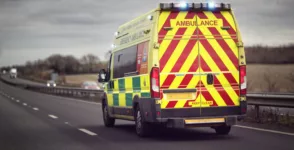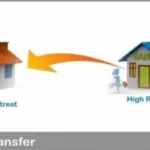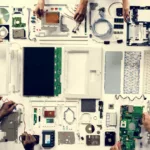Would you know what to do if you suddenly felt like you were going to pass out behind the wheel? Or, what if a passenger in your car thought they were having a hard attack? Medical emergencies do happen in the car, so it’s better to be prepared for this scary scenario before it happens. Read on to learn how you should respond to three different types of medical emergencies that could happen when you’re driving.
If a passenger suffers from a medical emergency
If you’re dealing with a life-threatening medical emergency, the best course of action is to note your location, pull over and call 911. Once you’re on the phone with a dispatcher, they can help you decide how to proceed. To make a successful 911 call, follow this advice: describe the nature and location of your emergency as soon as you’re asked. You’ll also want to provide your phone number so that you can be reached if your call is disconnected; follow the operator’s instructions until they ask you to hang up.
Waiting for emergency help has a couple of benefits: you’ll avoid getting stuck in traffic on the way to the hospital, and your passenger can receive potentially life-saving treatment from first responders. In addition, since your car is not considered an emergency vehicle, you’re not allowed to break the law by speeding or running red lights to get to the hospital. By doing so, you run the risk of causing an accident, or getting pulled over by the police.
Keep in mind that the 911 dispatcher may ask you a lot of questions on the phone. Oftentimes, the dispatcher is hoping to assess the situation and keep you calm. The dispatcher may also ask about medications the passenger may be taking, and many of the questions asked you may not know how to respond to properly. Remain patient with the dispatcher – they’re only doing their job.
If you experience a medical emergency
If you’re the one in the driver’s seat, it’s even more important that you follow the advice above and pull over to call for assistance. If there is a passenger in the car with you, they can help you make a 911 call if your emergency is serious.
For non-life-threatening illnesses, your passenger can take over driving duties and take you to the nearest hospital or clinic. As a driver, you have the added responsibility of following your doctor’s advice to not drive if you have a condition that could potentially flare up while you’re behind the wheel. In addition, Ontario medical professionals are required to report patients with conditions that could impair their ability to drive.
It’s important to seek medical attention, have your condition examined and follow the right treatment to ensure that you remain a non-hazard on the road.
If you’ve caused an accident due to a medical emergency
If your sudden medical emergency results in a collision, immediately call 911 for assistance and follow the dispatcher’s advice. In the aftermath of the collision, talk to your car insurance provider to find out how this will affect your claim. If your medical emergency caused you to lose control of your vehicle, it may absolve you from being found at-fault in the accident. However, if your emergency was reasonably foreseeable, that defence won’t work. An emergency could be considered reasonably foreseeable if you had previous knowledge of your medical condition or had been given explicit instructions not to drive on certain medications.
If the medical condition is serious, you should consult with your doctor in an effort to prevent further incidents when driving. You may be prescribed medications for serious conditions, and if the doctor cannot find the cause of your condition, he or she may ask you to stop driving until a cause for the condition is found or until enough time has passed without the condition presenting to ensure you’re not a hazard on the road.
In the midst of a medical emergency, it could be difficult to remember exactly what to do. The most important takeaway is to keep calm and trust the emergency professionals to guide you through this scary situation.
Knowing what to do, even if you don’t follow every step outlined above, will make a medical emergency less stressful and taxing.








